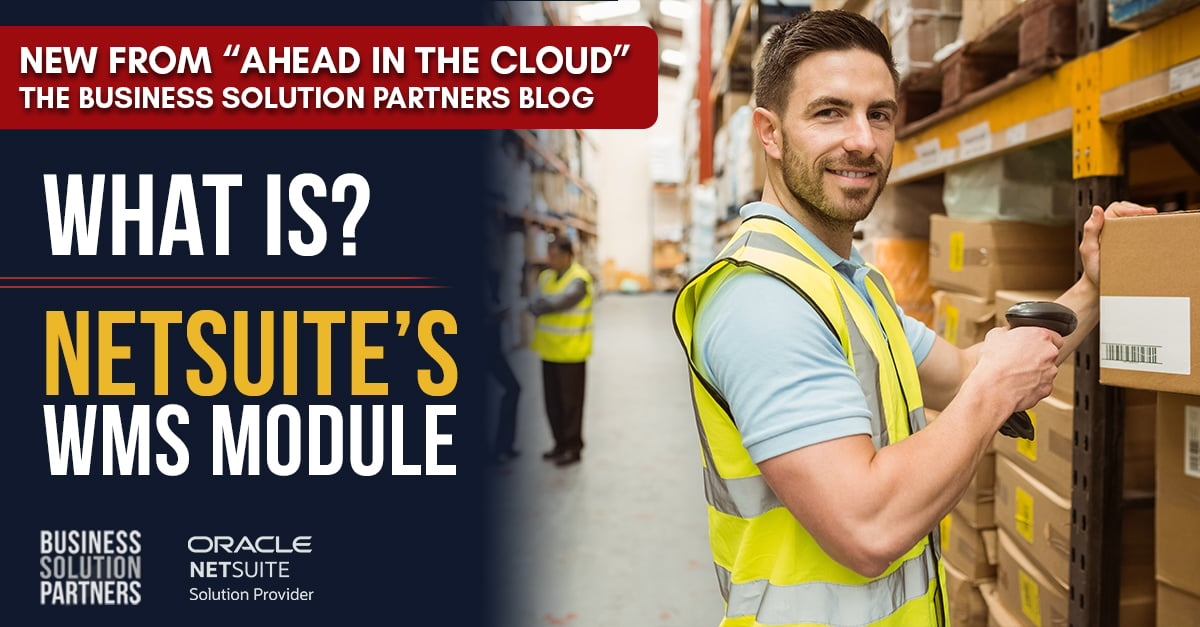How Does Better Inventory Management Aid Order Fulfillment?
Technology solutions can help distributors to better manage their inventory, which in turn improves order fulfillment and increases customer...

NetSuite's WMS (Warehouse Management System) Module is a native extension of the core NetSuite solution that provides real-time visibility into inventory and warehouse operations. WMS is a product of NetSuite that is fully integrated with their ERP functionality and provides advanced inventory management, warehouse automation, and shipping capabilities.
The module was designed to replace manual and outdated process with a real-time view into your organization's inventory levels and locations. It will reduce your dependency on spreadsheets and paper-based systems and enable barcode scanning to improve the accuracy and speed of inventory tracking and fulfillment. The WMS Module will even help you optimize warehouse layouts to ensure that your products are stored in the most efficient and accessible locations.
Here are some of the key features of NetSuite's WMS module:
Barcode Scanning: The WMS module allows warehouse workers to use barcode scanners to quickly and accurately track inventory movement, receiving, picking, and shipping.
Advanced Picking Strategies: NetSuite's WMS module offers advanced picking strategies, including wave picking, zone picking, and batch picking, to increase productivity and accuracy.
Inventory Management: The WMS module provides real-time visibility into inventory levels, locations, and movements, allowing businesses to optimize their inventory management processes.
Bin and Slot Management: NetSuite's WMS module enables warehouse managers to create a map of their warehouse with specific locations, bins, and slots to optimize space utilization and increase picking accuracy.
Shipping Management: The WMS module allows businesses to manage shipping carriers, print shipping labels, and track shipments in real-time.
Automation: NetSuite's WMS module provides automation capabilities such as putaway, replenishment, and cycle counting, which can help to increase efficiency and reduce errors.
Designed to help businesses manage warehouse operations, from inventory management to order fulfillment, any organization that operates a warehouse or distribution center can benefit from using NetSuite's WMS module.
Retailers: Retailers can use NetSuite's WMS module to manage their inventory, including receiving and storing products, picking and packing orders, and shipping them to customers.
Manufacturers: Manufacturers can use the WMS module to manage their raw materials inventory, track production orders, and manage finished goods inventory.
Distributors: Distributors can use the WMS module to manage their inventory across multiple warehouses or distribution centers, ensuring that they have the right products in the right place at the right time.
E-commerce businesses: E-commerce businesses can use NetSuite's WMS module to manage their online orders, including order processing, picking, packing, and shipping.
3PLs: Third-party logistics (3PL) providers can use the WMS module to manage their clients' inventory and orders, providing real-time visibility into their warehouse operations.
It's clear that any organization that requires inventory management and order fulfillment can benefit from using NetSuite's WMS module. It's a comprehensive Warehouse Management System that can help businesses optimize their inventory management and warehouse operations, reduce errors, and improve productivity.
Want to learn more about how NetSuite, and the WMS Module can help you scale your business to the next level? Contact us today to find out why Business Solution Partners are the WMS experts, and how we have helped clients like you to achieve their business objectives with NetSuite.
Technology solutions can help distributors to better manage their inventory, which in turn improves order fulfillment and increases customer...

If you use NetSuite to manage your sales online, over the phone, or both, you’ll likely need to manage how inventory travels from your...
Distributors need to be vigilant in identifying inventory management inefficiencies in the warehouse to avoid unnecessary costs and to increase...